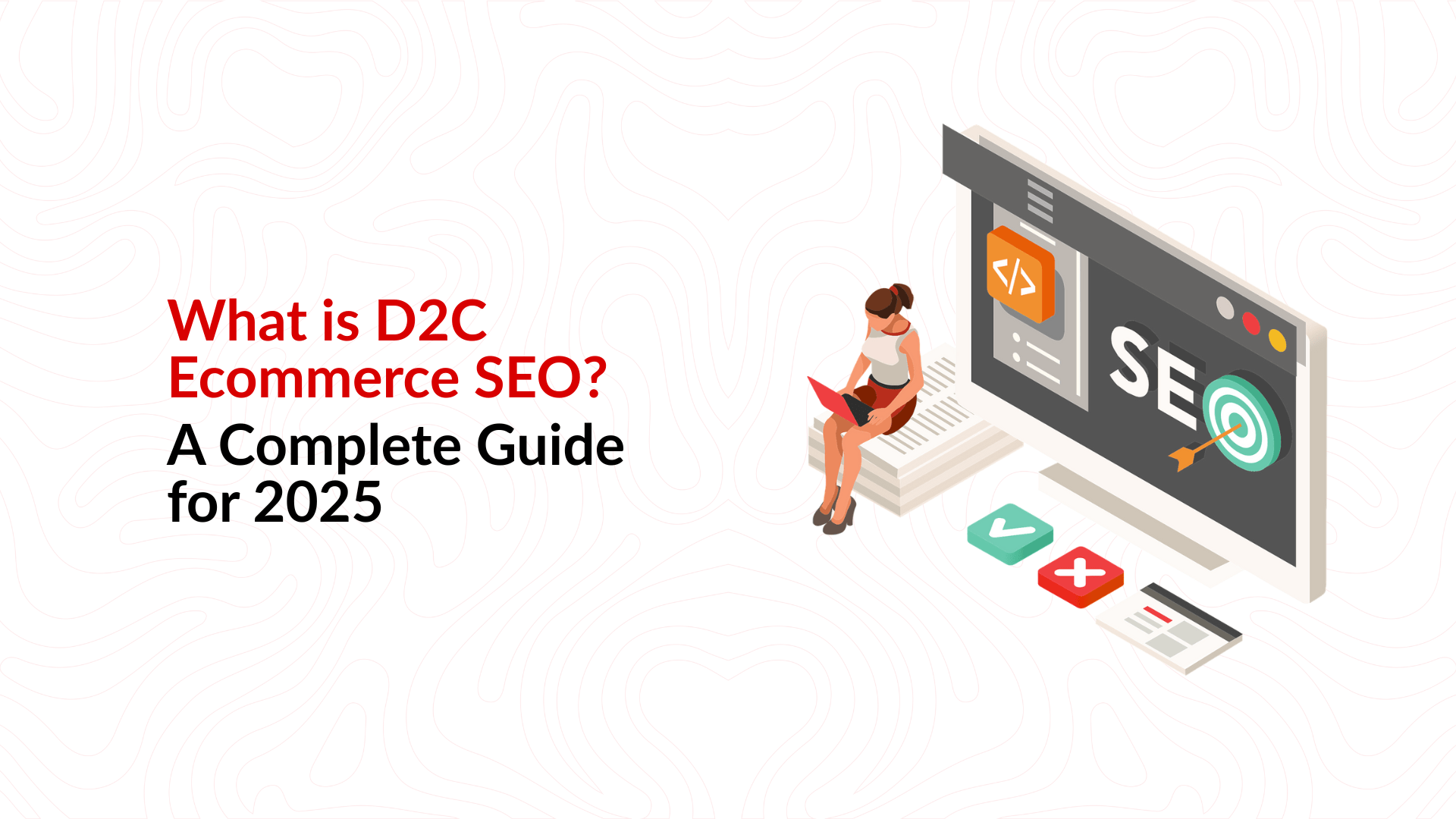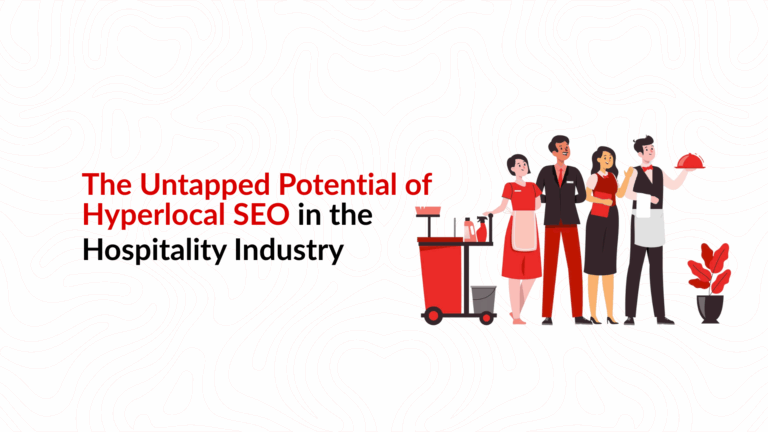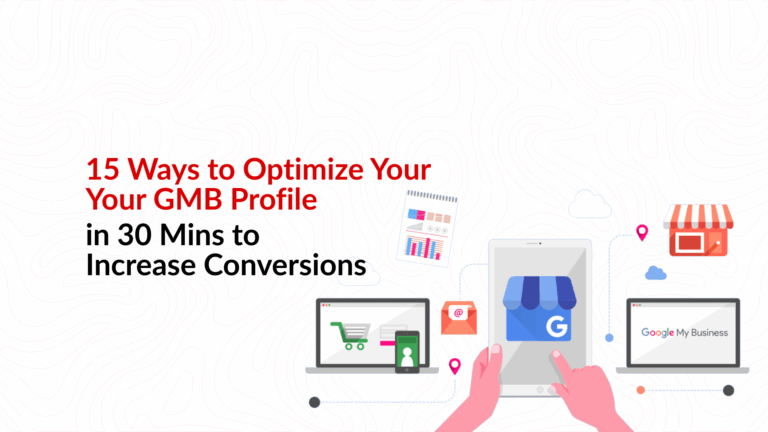What is D2C Ecommerce SEO? A Complete Guide for 2025
Direct-to-consumer (D2C) is simple on paper and tough in practice: you sell straight to customers through your own store, no middlemen, total control. The upside is obvious—pricing power, brand story, first-party data. The competition? Also obvious. Everyone’s in the same race for the same attention.
India has leaned hard into this model. The market jumped from roughly US$33.1B in 2020 toward a US$100B marker by 2025. Add to that a swelling base of 180M+ online shoppers and hundreds of active D2C brands. Globally, the D2C curve keeps rising too, pushed by digital adoption, personalisation, and better margins. Bottom line: this is where retail is heading.
But none of it matters if people can’t find you. d2c ecommerce seo is the engine that gets qualified visitors to your site and nudges them toward the “Buy” button. Compared with marketplace-style SEO, what is d2c seo really about? More brand, more intent matching, more first-party data, and a full-funnel content approach built for your own property—not someone else’s platform.
Why SEO is Critical for D2C Brands
Paid ads have their place, but the tap turns off the second your budget does. SEO is different: once you earn rankings, pages keep pulling traffic long after the invoice is paid. And that matters when CAC is creeping up across every channel.
Here’s why seo for d2c brands is mission-critical:
- Lower CAC over time. Organic clicks don’t charge you per visit. That breathing room lets you reinvest in product, packaging, service—the stuff customers actually talk about.
- Trust that compounds. Shoppers treat organic results like a credibility filter. Helpful guides, clear product pages, and transparent reviews build confidence before the first purchase.
- Full-funnel coverage. SEO supports top-funnel discovery, mid-funnel comparison, and bottom-funnel action. It’s a foundation for your d2c digital strategy, not a single tactic.
- Better ROI trajectory. Strong programs often show healthy early returns and then accelerate over 12–24 months as content and links stack up. That sustained visibility is hard to beat.
Pair it with paid when you launch or need instant volume, but let SEO do the heavy long-term lifting. That’s smart d2c brand marketing.
Understanding Customer Search Intent to Boost D2C Sales
Before you write a single page, map intent. Not keywords—intent. People type queries because they’re trying to do something specific. If your page answers that job, you win.
Four big buckets drive search intent in seo:
- Navigational: “Brand name + login,” “Opositive D2C SEO services.” They’re trying to reach a page.
- Informational: “How to choose running shoes.” They want clarity, not a sales pitch.
- Commercial investigation: “Best vegan shampoo for dry hair.” They’re comparing, weighing options.
- Transactional: “Buy vegan shampoo online.” Ready to act; don’t hide the add-to-cart.
Two quick moves boost customer intent analysis without extra tools:
- Read “People also ask” for your core query and answer those questions in plain language.
- Scan SERPs: if the top results are listicles and guides, write a better one; if they’re product pages, make yours the easiest to trust and buy.
Tie this back to d2c consumer behavior. Someone searching “best protein powder for women over 40” has a very different worry set than “how much protein for beginners.” Meet them where they are, with the right format and tone.
Essential SEO Steps to Launch a Successful D2C Business
Think of this as your working ecommerce seo checklist. Get these right and you’ll avoid most of the potholes.
Technical SEO: site speed, mobile UX, indexing
- Crawl paths: Clean robots.txt, working XML sitemaps, no orphaned pages.
- Mobile-first: Design for thumbs. Test forms, menus, filters on an actual phone.
- Speed: Compress images, lazy-load where possible, trim unused scripts. Seconds matter.
- Canonical tags: Keep variants and parameters from spawning duplicates.
- Structured data: Product, Review, and FAQ schema help win richer results.
- Internal linking: Make the path from guide → category → product obvious.
Keyword research for niche targeting
Start broad, then zoom in. Blend high-intent long-tails (“organic bamboo bedsheets India,” “silicone-free shampoo for curly hair”) with a few category heads. Track difficulty, seasonality, and intent. The goal isn’t just traffic—it’s traffic that buys.
On-page SEO (titles, headers, product descriptions)
- Titles that promise something specific.
- Skimmable H2/H3s that actually help.
- Product copy that sounds human and answers objections: ingredients, sizing, fit, care, returns.
- Real photos. Real reviews. Real FAQs.
This is technical seo for ecommerce in spirit: remove friction for both bots and humans.
Local SEO for offline presence
If you have stores or pop-ups, keep NAP consistent, update your Google Business Profiles, add local landing pages with hours, inventory notes, and directions. Useful beats clever.
When you’re ready to scale execution or want a partner to own the roadmap, talk to a D2C SEO agency India.
Content Marketing & Link Building for D2C Success
Content isn’t filler; it’s your salesperson that never sleeps. A pragmatic blog strategy for d2c mixes:
- Long-form guides that teach and rank (“How to choose the right mattress for back pain”).
- Buying guides and ‘best of’ lists that compare options honestly.
- Care/how-to content that reduces returns and increases satisfaction.
- Story-driven posts that explain why your product exists and who it’s for.
That feeds discovery and equips your email, social, and ads with assets that actually have something to say. It’s the heart of content marketing for ecommerce.
Now the other half: links. You need authority signals. Focus your link building for ecommerce seo on quality, not volume.
- Digital PR: Skip the cookie-cutter press releases. Instead, share something that actually sparks curiosity.It can be fresh data, market shifts, an honest founder’s story, or a sneak peek at an exciting product upgrade with journalists and outlets that genuinely cover your field.
- UGC & community: Let your happy customers do the talking. Highlight their real photos and heartfelt reviews right on your product pages, and build long-term connections with creators who truly use and love what you offer.
- Resource assets: Put out content people can’t help but share—original research, smart calculators, or interactive tools they’ll bookmark because they solve real problems or save time.
- Guest editorials: Write for niche platforms in a way that makes their audience feel seen. Offer perspectives and insights that stick with them long after they’ve finished reading.
Keep anchor text varied. Earn links to categories and guides, not just the homepage. Internal links should pass equity forward to money pages. If you want a hands-on roadmap for this, our ecommerce SEO team can outline targets, angles, and outreach cadences for your niche.
Measuring D2C SEO ROI: How SEO Delivers 10x Returns
If you can’t connect SEO to revenue, you’ll always be defending budget. Make measurement boringly clear.
Core steps for seo roi ecommerce
- Define goals and events. Purchases, add-to-cart, email signups, quiz completions.
- Track properly. GA4 e-commerce, server-side or robust tag management.
- Attribute cleanly. Last-click is simple, but assisted conversions tell the real story—search often starts the journey.
- Benchmark LTV and CAC. Organic tends to deliver better retention; measure it.
- Show slope, not just dots. Month-over-month is fine; quarter-over-quarter is better; rolling 12-month trend is best.
What stakeholders care about: cost to acquire, payback time, and how dependable the channel is. When you prove that compound effect—rankings + content + links feeding each other—your d2c brand performance metrics conversation gets easier. That’s the heart of seo analytics for ecommerce.
Scaling Your D2C Brand in 2025 & Beyond
This is where the fun starts. You’ve got traction. Now you need lift.
Omnichannel growth (SEO + social + email)
Own search for durable demand. Use email to deepen loyalty (post-purchase flows, replenishment reminders, VIP drops). Let social drive discovery: Threads, Pinterest, and Snapchat all play differently—test formats, track saves/shares, and bring winning creative back to your site.
Fast-growing platforms
Pinterest is quietly excellent for certain categories (home, beauty, wellness, food). Treat it like visual search. Fresh pins, alt text, and seasonally-tuned boards help visual seo more than people realize.
International SEO for cross-border D2C
Start with one new market. Localise language, currency, shipping promises, and returns. Use hreflang correctly. Each region will have its own winners for queries—don’t assume your home-market keyword map translates 1:1. That’s how you scale d2c brand india outward without burning cycles.
Future shifts to watch: 2025 ecommerce trends
- Voice search: Make FAQs conversational and markup clean.
- AI-assisted shopping: Fit guides, size help, routine builders—great for conversion and returns reduction.
- Privacy-first growth: First-party data matters more every quarter; pair it with SEO’s stable demand capture.
More FAQs to be add
How long does SEO take to work for a D2C brand in India?
Assume a marathon, not a sprint. Most brands see early traction in 3–6 months, steadier gains by month 6–12, and the big compounding curves after a full year of consistent work. Category competition and site history matter.
Can SEO alone sustain a D2C business without paid ads?
Yes—if you’re patient and consistent. That said, pairing SEO with paid helps you test angles faster and capture short-term demand. Many brands run lean always-on search while using paid for launches and seasonal spikes.
What are common SEO mistakes made by D2C startups?
Shipping a beautiful site that’s slow on mobile. Copy-pasting manufacturer descriptions (duplicate content). Writing only for bots. Forgetting internal links. Buying cheap links. Skipping measurement. All fixable, all costly if ignored.
How does SEO impact customer lifetime value in D2C?
Organic traffic tends to bring in people who were already interested—which means they convert more often, come back for repeat purchases, and generally have better long-term value. Add to that helpful content, honest reviews, and useful post-purchase guides, and you’re building habits that keep customers coming back.
Are there SEO differences between Indian and global D2C strategies?
India is mobile-first, price-sensitive, and multilingual. Local festivals and regional languages matter for planning. Going global? Treat each market like a new playbook: hreflang, local keyword research, cultural nuance, and region-specific trust signals.














